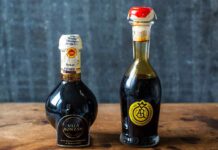It’s easy to feel overwhelmed when you first start using CBD. There are so many CBD products on the market, such as full-spectrum CBD gummies, that it can take time to know where to begin. Almost every day, new businesses and products emerge. Even though the CBD market is constantly expanding and changing, spectrum types will always remain the same.
- What is the definition of a spectrum? CBD’s two most important aspects may be its quality and spectrum type. The company frequently determines quality matters and the ingredients used.
Even though spectrum type has little effect on quality, it is still important. The type of spectrum chosen is entirely dependent on personal preferences. While some people prefer CBD isolate to full-spectrum products, others prefer the chemical combination found in full-spectrum CBD.
In the context of CBD, the term “spectrum” refers to the specific class of cannabinoids found in a given product. Different types of spectrum correspond to various cannabinoids. This will become clearer as we examine the various spectrum types more closely.
- What does full-spectrum mean? The phytocannabinoids, flavonoids, terpenes, and essential oils found in hemp are all used in the production of full-spectrum CBD. While CBD and THC are two of the most well-known cannabinoids produced by plants, hemp contains over a hundred phytocannabinoids that can improve your well-being and health when combined rather than separately. When these various hemp constituents are combined, their effects on the endocannabinoid system are amplified.
Full-spectrum CBD oil has a lesser THC concentration, which means that there isn’t enough THC in one serving to get you high or experience any other type of mental high. THC can function effectively when combined with Cannabidiol and other cannabinoids, providing a whole-plant experience that is distinct from CBD isolate or broad-spectrum CBD oil.
- What does “broad spectrum” mean? The broad spectrum is the middle way between CBD isolate and the full spectrum. It’s not as pure as CBD isolate but lacks the full spectrum of cannabinoids discovered in full-spectrum CBD. Broad spectrum extracts, which are used in the preparation of CBD products, contain a variety of beneficial substances such as CBD, CBG, and terpenes.
Full-spectrum CBD does not contain THC, which is the main distinction between the latter and broad-spectrum CBD. While full spectrum is evidently the most popular spectrum type, broad spectrum comes in a close second. Many people are interested in the cannabinoids found in full-spectrum CBD.
- What exactly is CBD isolate? CBD isolate is the most simple and direct spectrum to grasp. The name itself is self-explanatory. CBD Isolate contains no other cannabinoids besides CBD. These items are frequently preferred by athletes and other professionals who are constantly forced to submit to drug testing.
CBD isolate is popular among enthusiasts and those who want to enjoy the benefits of CBD without being influenced by other cannabinoids.
How are CBD spectrums created: The starting point for all hemp plant extracts. Following a 120-day growth cycle, industrial hemp is harvested, left to dry, and ready for extraction. Cannabinoids can be extracted from hemp in various ways, with CO2 extraction methods being the most popular. Using CO2, all of the helpful CBD can be transferred to the final extract, which is both safe and effective.
When the previous steps are completed, producers have two choices: keep all of the substances in the full spectrum extract, or continue processing the oil to separate and extract specialized cannabinoids, such as THC.
However, more research is required to determine the effects and benefits of each CBD type on health. For example, a person who prefers a THC-free product may want to look into CBD isolate. In addition, even if CBD product labels state that they are THC-free, unregulated CBD markets would indicate that this drug is still present in low concentrations.
CBD isolates and full-spectrum CBD products both have advantages. However, before purchasing anything, consumers should always read the label carefully and discuss the use of CBD with a physician or other healthcare professional.


























